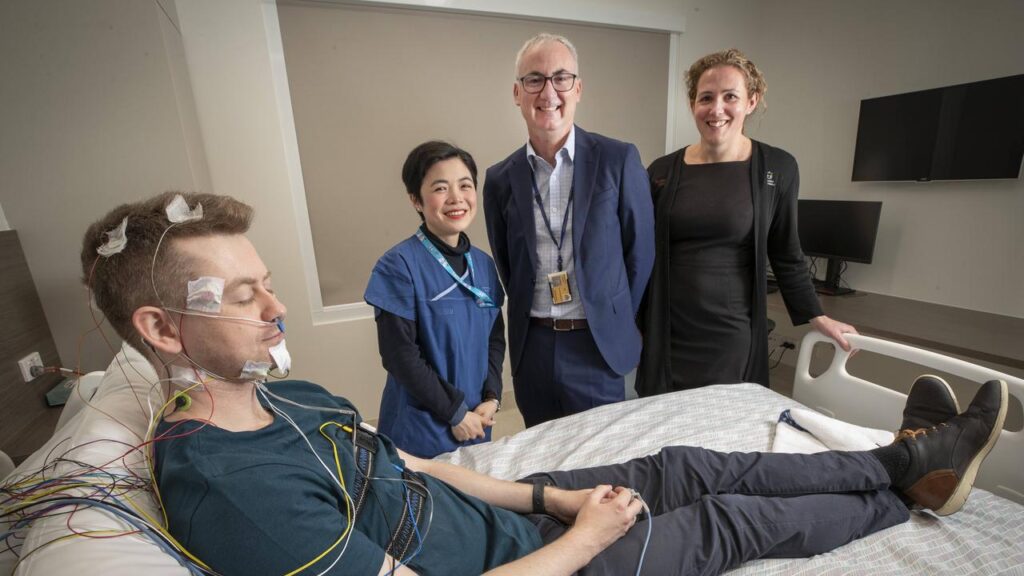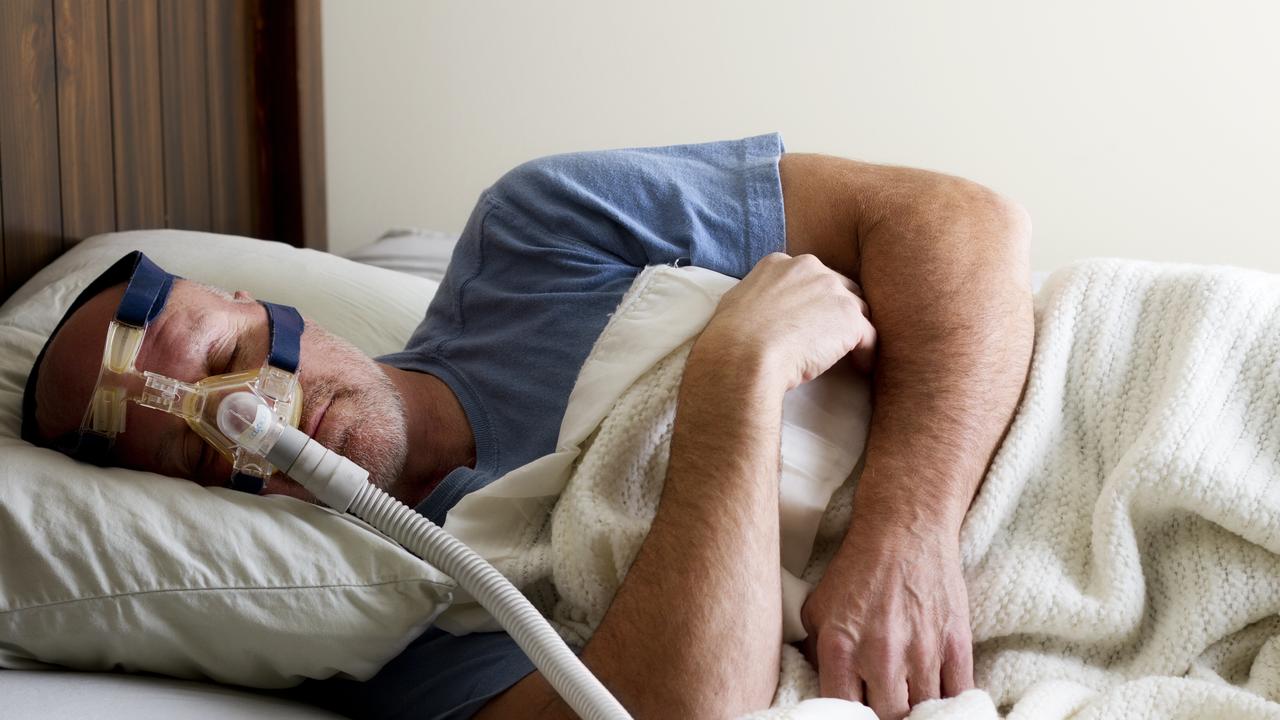Home sleep studies are a major improvement in diagnosing sleep disorders, providing patients in Hobart with a convenient alternative to traditional laboratory-based sleep assessments. These tests use portable monitoring devices that patients can use in the comfort of their own beds, gathering important information about their sleep patterns and potential disorders.
It’s important for Hobart residents considering this diagnostic option to understand the costs involved with home sleep studies. The financial aspects can vary based on several factors, including Medicare coverage, private health insurance benefits, and specific provider pricing structures.
Several healthcare providers in Hobart specialise in conducting home sleep studies:
- Air Liquide Healthcare – Australia’s largest facilitator of home sleep studies
- Health Dynamics Tasmania – Offering comprehensive sleep diagnostic services
- Hobart Sleep Solutions – Providing specialised sleep disorder assessments
- SNORE Australia – Delivering professional sleep study services
- Complete Care – Supporting patients through the diagnostic process
These providers collaborate with local medical professionals to ensure patients receive top-notch diagnostic services while still having access to ongoing support and treatment options. The presence of multiple providers creates a competitive environment that can impact pricing structures and service delivery standards throughout Hobart.
The Process of Home Sleep Studies
Home sleep studies are used to diagnose different sleep disorders using portable monitoring devices. These small recorders track important bodily functions while you sleep:
The home sleep studies cost Hobart varies significantly based on referral pathways and individual circumstances. Through the Tasmanian Health Service, eligible pensioners can access subsidised rates, reducing the financial burden of diagnostic testing.

- Breathing patterns and airflow
- Blood oxygen levels
- Heart rate and rhythm
- Body position
- Snoring intensity
- Chest and abdominal movements
How Home Sleep Studies Work
The process involves wearing the monitoring equipment for one to two nights in the comfort of your own bedroom. This natural sleep environment often gives more accurate results compared to laboratory settings.
Read more at: Sleep Study Hobart Affordable Testing Options for Sleep Apnea
Hospital vs Home Studies: A Comparison
| Factor Hospital Studies Home Studies Accuracy | Comprehensive monitoring with 16+ channels | Utilises 4-7 channels, which is sufficient for most sleep disorder diagnoses |
| Patient Experience | Normal bedtime routines may be disrupted | Allows normal bedtime routines, familiar surroundings promote typical sleep patterns, no observation-related anxiety |
The accessibility of home sleep studies in Hobart, Perth, Brisbane, and Melbourne through platforms like Sleep Solutions Australia presents distinct advantages for patients:
- Reduced waiting periods – typically 1-2 weeks versus 6-8 weeks for hospital studies
- Cost-effective diagnostic option
- Immediate start to treatment upon diagnosis
- Flexible scheduling options
- No travel or overnight hospital stays required
Modern portable diagnostic recorders feature advanced sensors and automated scoring systems, ensuring reliable data collection for accurate diagnosis by sleep specialists.
Cost Coverage by Medicare and Private Health Insurers
Medicare provides substantial coverage for home sleep studies in Hobart under specific eligibility criteria:
- Bulk Billing Options: Medicare covers 85% of the scheduled fee when patients meet the required conditions
- GP Referral: A valid referral from a general practitioner is essential for Medicare coverage
- Medical Necessity: Documentation of sleep-related symptoms and risk factors must be present
Private health insurance packages offer additional financial support for sleep-related treatments:
- Coverage for CPAP equipment rental or purchase
- Partial reimbursement of ongoing supplies and accessories
- Extended therapy support services
The cost implications for patients vary based on their insurance status:
Medicare-Only Patients:
- Out-of-pocket expenses range from $100 to $250
- Additional costs may apply for follow-up consultations
- Rental fees for CPAP equipment not covered
Private Health Insurance Holders:
- Reduced initial assessment costs
- Equipment subsidies through selected providers
- Annual limits on claiming sleep-related expenses
Specific rebates and coverage amounts depend on individual circumstances and chosen health fund policies. The exact out-of-pocket expenses vary based on the selected provider and level of insurance coverage. Find more about circumstances on https://ugc.berkeley.edu/background-content/evolution/

Partnerships and Services Offered in Hobart
Air Liquide Healthcare – Sleep Solutions stands as Australia’s largest facilitator of home sleep studies in Hobart, providing comprehensive diagnostic and treatment services. The organisation maintains strategic partnerships with leading CPAP equipment manufacturers, delivering patients access to cutting-edge sleep diagnostic technology and treatment options.
Several reputable sleep brands operate under the Air Liquide Healthcare umbrella:
- SNORE Australia
- Healthy Sleep Solutions
- Mycroft
- Complete Care
- Sleep Disorder Australia (SDCA)
Local clinics such as Health Dynamics Tasmania and Hobart Sleep Solutions offer specialised services including home-based sleep studies using non-invasive recording equipment:
- Initial consultation and assessment
- CPAP therapy initiation
- Personalised titration programs
- Regular equipment maintenance checks
- Ongoing therapy guidance
These facilities maintain dedicated sleep specialists who provide continuous support throughout the treatment journey. Patients receive regular follow-up care to monitor progress and adjust treatment plans when necessary. The clinics also offer equipment fitting services, ensuring optimal comfort and effectiveness of prescribed CPAP devices.
Health Dynamics Tasmania provides additional specialised services:
- Sleep disorder education programs
- Equipment troubleshooting assistance
- Regular progress reviews
- Mask fitting and adjustment sessions
- Data analysis and treatment optimisation
Referral Process and Eligibility Requirements
To get a home sleep study in Hobart, you need a referral from your GP or a specialist doctor. During your first appointment, these medical professionals will look at your symptoms and any risk factors that could indicate a sleep disorder.
How We Determine Eligibility
We use two main tools to decide if you’re eligible for a home sleep study:
- STOP BANG Questionnaire: This questionnaire assesses important risk factors such as snoring patterns, daytime tiredness, observed breathing pauses, blood pressure status, body mass index (BMI), age considerations, neck circumference, and gender-specific risks. To find more about pressure click here.
- Epworth Sleepiness Scale (ESS): The ESS measures how sleepy you feel during the day by using a standard scoring system that rates various daily activities.
Who Can Skip the Consultation?
If you meet certain criteria, you won’t have to go through the usual consultation with a sleep physician. This makes it easier for you to access diagnostic services. Here are the criteria:
- You must be 18 years old or older.
- You shouldn’t have any major heart or lung conditions.
- You shouldn’t have any neuromuscular disorders.
- You shouldn’t have been previously diagnosed with sleep disorders.
What Documents Are Needed?
When referring patients for home sleep studies, medical practitioners must include the following information in their referral documentation:
- Comprehensive patient history
- Physical examination findings
- Completed STOP BANG Questionnaire results
- Epworth Sleepiness Scale (ESS) scores
Who Sends Referrals?
Medical practitioners send these referrals directly to accredited sleep study providers in Hobart. These providers then take care of all arrangements for the home sleep study with eligible patients.
For those considering options outside Hobart, sleep study services in Sydney, Adelaide, and Canberra are also available.
Analysis and Reporting of Home Sleep Study Data
Home sleep studies capture comprehensive physiological data through sophisticated monitoring equipment. The recorded parameters include:
- Respiratory measurements: Nasal airflow patterns, chest and abdominal movements, breathing effort, snoring intensity
- Cardiovascular indicators: Blood oxygen saturation levels, heart rate variations, pulse transit time
- Physical movements: Body position changes, limb movements, sleep position tracking
Registered sleep scientists analyse this collected data using specialised software to identify patterns and anomalies in sleep architecture. These experts examine specific events such as apnoeas, hypopneas, oxygen desaturations, and arousal frequencies.
The analysis generates detailed metrics including:
- Apnoea-Hypopnea Index (AHI)
- Oxygen Desaturation Index (ODI)
- Sleep efficiency percentages
- Distribution of sleep stages
Sleep physicians review these findings alongside the patient’s medical history to establish accurate diagnoses. This comprehensive evaluation enables the development of personalised treatment strategies, which might include:
- CPAP therapy specifications
- Positional therapy recommendations
- Lifestyle modification suggestions
- Medical device adjustments
The resulting diagnostic report provides precise measurements and clinical interpretations, serving as a foundation for targeted therapeutic interventions suited to each patient’s specific sleep disorder profile.
Pricing Transparency and Cost Variations
Standard pricing structure:
- Private patients: $250-$400
- Pensioner rates: $150-$250
- Bulk-billing options available for eligible Medicare cardholders
Patients referred through public health channels might qualify for reduced fees or bulk-billing arrangements. Private health insurance providers often contribute to the cost, depending on the level of cover. The exact out-of-pocket expenses depend on individual circumstances, referral source, and chosen healthcare provider.
Direct consultation with sleep study providers ensures clarity regarding costs and available payment options before proceeding with the study.

